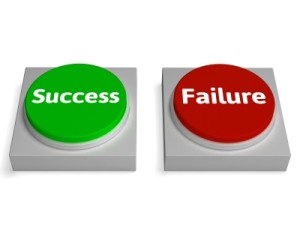For years, I had erroneously been quoting a study that never existed. I had heard of this research from some of my personal and business development heroes – Tony Robbins, Zig Ziglar, Brian Tracy. It was even written about in a book by Mark H. McCormack, What They Don’t Teach You at Harvard Business School.
As a person who devours personal and business development literature, I expected these amazing people as guides to teach me. Turns out, they had been talking about and teaching a study that never existed.
The story, as it was told by all of these gurus, is reported like this: In 1953, a survey was taken of Yale’s graduating seniors to answer the question “How many of them had specific, written goals for their future”. 3% of the class relayed that they had taken the time to write their goals for their lives. Then, the story continues, twenty years later, researchers found all of the surviving members of the Yale Class of 1953 and discovered that the 3% with goals had accumulated more personal financial wealth than the other 97% of the class combined.
The problem, as discovered by Fast Company magazine in 1996, is that this study never took place.
Look, I have always believed in the power of setting goals and creating a plan to achieve them.
Around this time of year, you will read the plethora of blog posts and articles which tell you why and how you should be planning for your next year. I have written my fair share of posts as well. But I had been using this erroneous study as one of the inspirations for getting my clients and readers to set written goals.
I still believe in the power of goal setting, but it wasn’t until recently that I found a 2007 study conducted by Dr. Gail Matthews of Dominican University in California and was given the proof necessary to show that
- writing your goals,
- creating action steps to achieve them, and
- sharing your progress reports with someone who will hold you accountable on a weekly basis,
results in 76% increase in the achievement of those goals from those who don’t set goals at all.
Even those who just put their goals in writing, without creating the action plan or having an accountability partner, were still more than 50% more likely to achieve their goals than those who didn’t write them down.
Is a 76% chance of success worth taking the time to write down your goals, create the steps to achieve them and be accountable to someone else worth it?
I think so.
If you want to learn how to create and implement a Rainmaking Plan to grow your book of business and your success for 2016, please join the Blue Print For Rainmaking Success Workshop for five (5) consecutive Mondays beginning December 7, 2015 through January 5, 2016. There are only 10 spots available for this training so that each attorney can receive individual attention.
The information on what you receive and how to sign up can be found here, along with a link to a webinar replay of Blueprint for Rainmaking Success hosted by MyCase, Inc.

Speak Your Mind